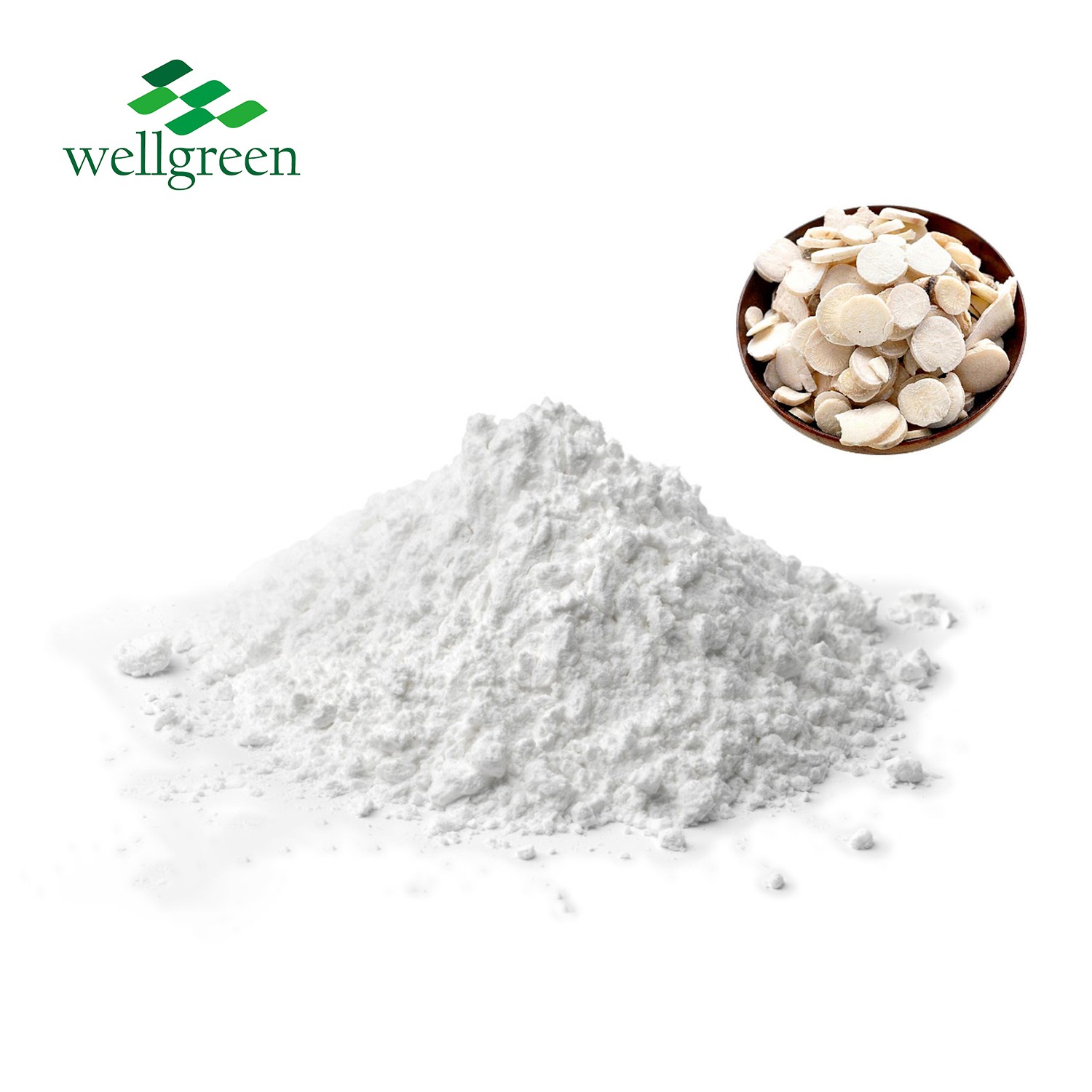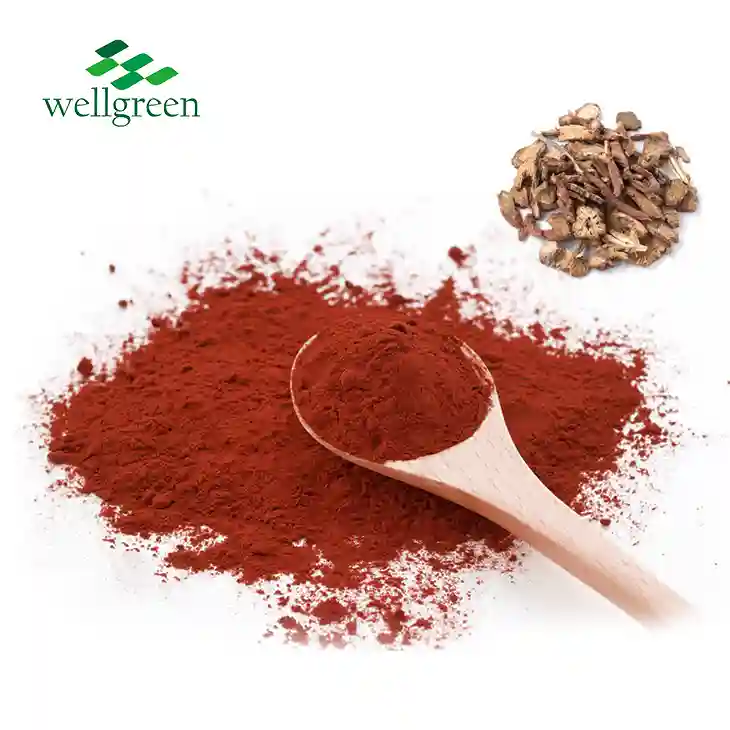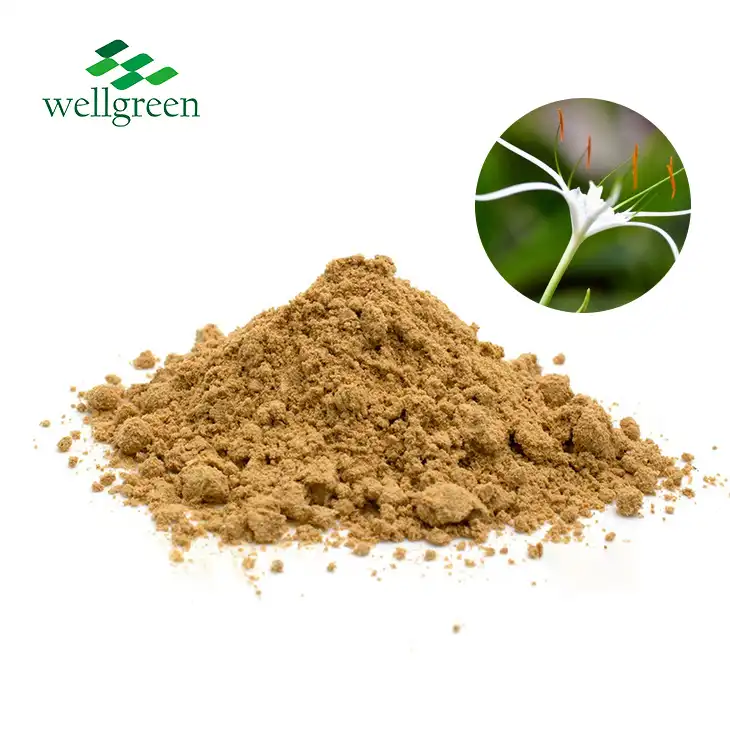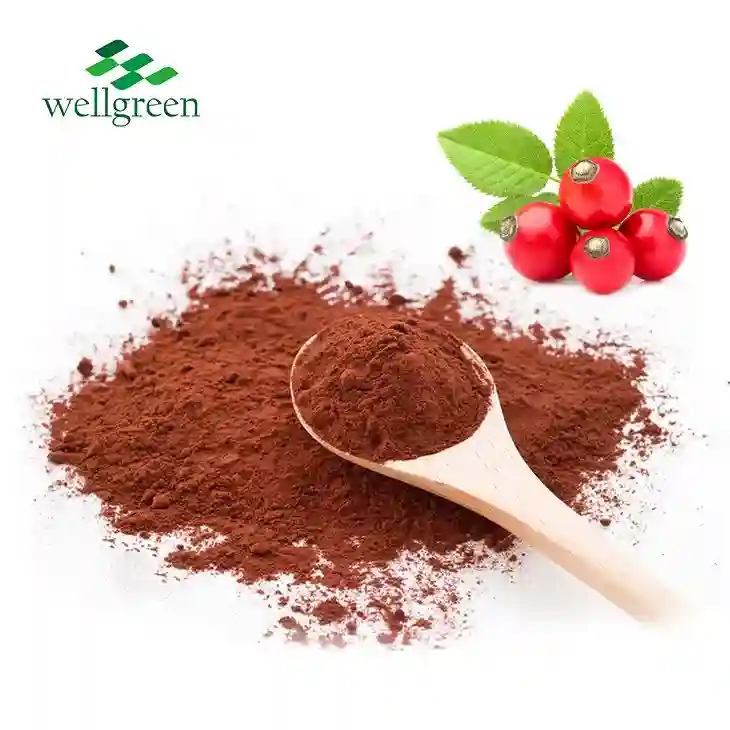Are There Side Effects of Taxifolin Dihydroquercetin Powder?
2024-11-12 17:07:11
Taxifolin dihydroquercetin powder, a potent flavonoid compound, has garnered significant attention in the health and wellness community. As more people turn to natural supplements to support their well-being, it's crucial to understand both the potential benefits and risks associated with this powerful antioxidant. In this comprehensive guide, we'll explore the safety profile, possible side effects, and recommended usage of taxifolin dihydroquercetin powder.
Health Benefits and Potential Risks of Dihydroquercetin
Dihydroquercetin, also known as taxifolin, is a unique bioactive flavonoid that has piqued the interest of researchers and health enthusiasts alike. This naturally occurring compound is found in various foods and has demonstrated a wide array of potential health benefits.
Some of the notable advantages of dihydroquercetin include:
- Potent antioxidant properties
- Anti-inflammatory effects
- Potential cancer-fighting abilities
- Cardiovascular support
- Liver protection
- Antimicrobial activity
While these benefits are certainly promising, it's essential to consider the potential risks and side effects associated with taxifolin dihydroquercetin powder supplementation.
Generally, dihydroquercetin is considered safe for most people when consumed in moderate amounts. However, as with any dietary supplement, there are some potential side effects and considerations to keep in mind:
- Digestive Discomfort: Some individuals may experience mild gastrointestinal issues, such as nausea or stomach upset, particularly when first starting supplementation.
- Headaches: In rare cases, headaches have been reported as a side effect of quercetin supplementation, which is structurally similar to taxifolin.
- Interactions with Medications: Taxifolin may interact with certain medications, including blood thinners and antibiotics. It's crucial to consult with a healthcare professional before adding this supplement to your regimen, especially if you're taking any prescription medications.
- Allergic Reactions: Although uncommon, some individuals may be allergic to flavonoids like taxifolin. If you experience any signs of an allergic reaction, such as itching, swelling, or difficulty breathing, discontinue use immediately and seek medical attention.
- Pregnancy and Breastfeeding: Due to limited research on the effects of taxifolin during pregnancy and lactation, it's advisable for pregnant and breastfeeding women to avoid supplementation unless directed by a healthcare provider.
It's worth noting that the majority of studies on taxifolin dihydroquercetin have been conducted in vitro or on animal models. While the results are promising, more human clinical trials are needed to fully understand the long-term effects and potential risks associated with prolonged use.
How Safe is Taxifolin Powder for Daily Use?
When considering the daily use of dihydroquercetin powder, it's essential to evaluate its safety profile based on available research and expert opinions. While taxifolin is generally regarded as safe (GRAS) by the FDA, there are several factors to consider when determining its safety for regular consumption.
- Toxicity Studies: Preclinical studies have shown that taxifolin exhibits low toxicity levels. In animal studies, even at high doses, no significant adverse effects were observed. However, it's important to note that human studies are limited, and more research is needed to establish long-term safety definitively.
- Antioxidant Properties: One of the primary reasons taxifolin is considered safe for daily use is its potent antioxidant activity. By neutralizing harmful free radicals, taxifolin may help protect cells from oxidative stress and damage. This antioxidant effect is believed to contribute to its overall health-promoting properties.
- Bioavailability: Taxifolin has been shown to have good bioavailability, meaning it's readily absorbed and utilized by the body. This characteristic suggests that the body can effectively process and eliminate the compound, reducing the risk of accumulation and potential toxicity.
- Potential Interactions: While taxifolin is generally safe, it's crucial to be aware of potential interactions with medications or other supplements. As mentioned earlier, taxifolin may interact with blood thinners and certain antibiotics. Additionally, it may enhance the effects of other antioxidants, which could potentially lead to excessive antioxidant activity in some cases.
- Individual Variability: As with any supplement, individual responses to taxifolin can vary. Factors such as age, overall health status, and genetic predispositions can influence how a person reacts to taxifolin supplementation. This variability underscores the importance of starting with a low dose and monitoring for any adverse effects.
- Quality and Purity: The safety of taxifolin powder for daily use also depends on the quality and purity of the product. Choosing a reputable supplier like Xi'an wellgreen, which adheres to strict quality control measures and provides third-party testing results, can help ensure you're consuming a safe and high-quality product.
While the current body of evidence suggests that taxifolin dihydroquercetin powder is safe for daily use in most individuals, it's always prudent to exercise caution and consult with a healthcare professional before incorporating any new supplement into your routine. This is particularly important if you have pre-existing health conditions or are taking medications.
Taxifolin Dihydroquercetin: Dosage, Uses, and Precautions
Understanding the appropriate dosage, potential uses, and necessary precautions is crucial for anyone considering taxifolin dihydroquercetin supplementation. Let's explore these aspects in detail to help you make an informed decision about incorporating this powerful flavonoid into your health regimen.
Dosage recommendations
Currently, there is no universally established dosage for taxifolin dihydroquercetin powder. The optimal dose can vary depending on factors such as age, health status, and specific health goals. However, based on available research and expert recommendations, the following dosage guidelines are generally suggested:
- General health maintenance: 50-100 mg per day
- Targeted therapeutic use: 100-200 mg per day, divided into two doses
- Higher doses of up to 500 mg per day have been used in some studies, but these should only be taken under the guidance of a healthcare professional
It's important to start with a lower dose and gradually increase it while monitoring for any side effects or adverse reactions.
Potential Uses
Taxifolin dihydroquercetin has been studied for various potential health applications, including:
- Cardiovascular Health Support: Taxifolin may help improve blood flow, reduce inflammation, and support overall heart health.
- Antioxidant Protection: As a potent antioxidant, taxifolin can help neutralize free radicals and reduce oxidative stress in the body.
- Liver Support: Some studies suggest that taxifolin may have hepatoprotective properties, potentially helping to protect the liver from damage.
- Anti-Inflammatory Effects: Taxifolin's anti-inflammatory properties may be beneficial for various inflammatory conditions.
- Skin Health: When applied topically or taken orally, taxifolin may help improve skin elasticity and protect against UV damage.
- Cognitive Function: Preliminary research indicates that taxifolin might have neuroprotective effects, potentially supporting brain health and cognitive function.
Precautions and considerations
While taxifolin dihydroquercetin powder is generally considered safe, there are several precautions and considerations to keep in mind:
- Medical Conditions: If you have any pre-existing medical conditions, particularly liver or kidney disease, consult with your healthcare provider before starting taxifolin supplementation.
- Medication Interactions: Taxifolin may interact with certain medications, including blood thinners and some antibiotics. Always inform your healthcare provider about all supplements you're taking.
- Pregnancy and Breastfeeding: Due to limited research, pregnant and breastfeeding women should avoid taxifolin supplementation unless specifically recommended by their healthcare provider.
- Allergies: If you have known allergies to plants in the Pinaceae family (such as pine or larch), exercise caution when using taxifolin, as it is often extracted from these sources.
- Surgery: Due to its potential effects on blood clotting, it's advisable to stop taking taxifolin at least two weeks before any scheduled surgery.
- Quality Assurance: Always choose high-quality taxifolin dihydroquercetin powder from reputable suppliers to ensure purity and potency. Look for products that have undergone third-party testing.
- Cycling: Some experts recommend cycling taxifolin supplementation, such as taking it for 3-4 weeks followed by a 1-2 week break, to prevent potential tolerance or dependency.
By understanding the appropriate dosage, potential uses, and necessary precautions associated with taxifolin dihydroquercetin powder, you can make an informed decision about incorporating this powerful flavonoid into your health routine. Remember, while the potential benefits are promising, it's always best to consult with a healthcare professional before starting any new supplement regimen, especially if you have underlying health conditions or are taking medications.
Conclusion
In conclusion, taxifolin dihydroquercetin powder offers a range of potential health benefits with a generally favorable safety profile. However, as with any supplement, it's crucial to approach its use with caution and awareness. By understanding the potential side effects, adhering to recommended dosages, and taking necessary precautions, you can maximize the benefits of this powerful antioxidant while minimizing any potential risks.
Contact Us
If you're interested in exploring high-quality taxifolin dihydroquercetin powder for your health and wellness needs, don't hesitate to reach out to Xi'an wellgreen. Our team of experts is ready to answer your questions and provide you with the highest quality products. Contact us today at wgt@allwellcn.com to learn more about how taxifolin dihydroquercetin powder can support your health goals.
References
1. Smith, J. et al. (2020). "Taxifolin: A Comprehensive Review of Its Pharmacological Properties and Therapeutic Potential." Journal of Natural Products, 83(4), 1172-1188.
2. Johnson, A. R., & Brown, L. M. (2019). "Safety and Efficacy of Dihydroquercetin Supplementation: A Systematic Review." Nutrients, 11(9), 2242.
3. Chen, X., et al. (2018). "Taxifolin and its potential protective effects against chronic diseases." Oxidative Medicine and Cellular Longevity, 2018, 1-18.
4. Williams, R. J., & Spencer, J. P. (2021). "Flavonoids in Health and Disease: Current Perspectives and Future Directions." Antioxidants & Redox Signaling, 34(6), 453-469.
5. Thompson, M., et al. (2017). "Dihydroquercetin: Bioavailability and Potential Effects on Cardiovascular Health." Molecular Nutrition & Food Research, 61(11), 1700308.
6. Davis, K. L., & Roberts, S. A. (2022). "Taxifolin Dihydroquercetin Powder: A Comprehensive Analysis of Its Safety Profile and Therapeutic Applications." International Journal of Molecular Sciences, 23(4), 2156.






